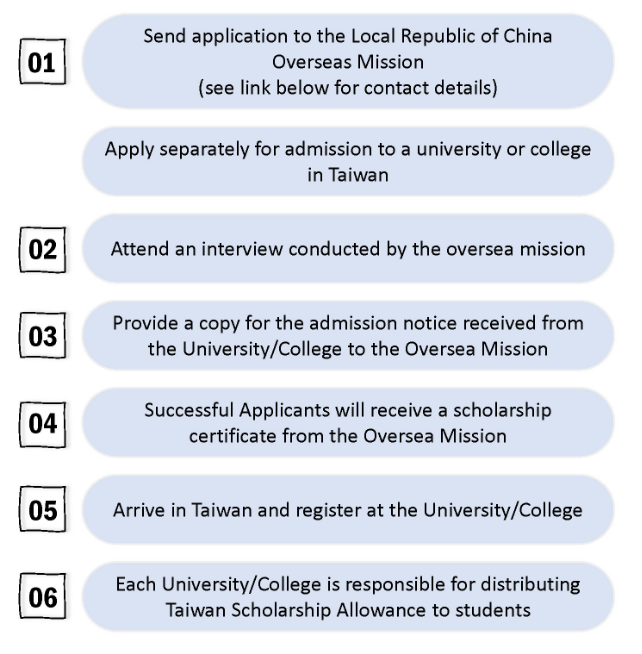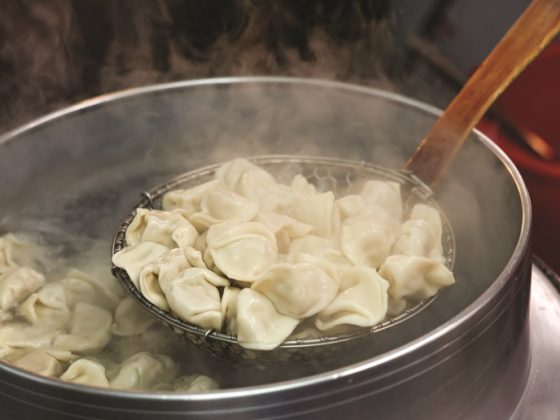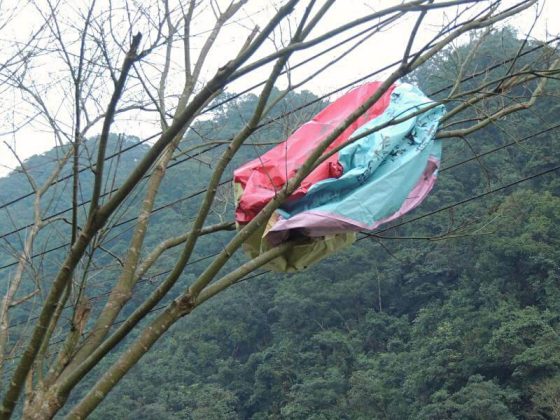Author Theo the Nomad

This guide will help you get started with studying Mandarin Chinese in Taiwan. Keep reading to learn more.
I studied Mandarin Chinese at the National Taiwan University (NTNU) for a while. I want to share my experience and help you start studying Mandarin.
Once you finish reading, you’ll know the following:
- Why Should I Study Mandarin Chinese in Taiwan?
- Price to Study Mandarin Chinese in Taiwan
- Scholarship & Grant Options for Studying Mandarin in Taiwan
- Best Chinese Language Centers to Choose in Taiwan
- How to Apply to Study Mandarin Chinese in Taiwan
- How to Get a Taiwan Student Visa
- My Mixed Experience Studying Mandarin in Taiwan
- Wrapping Up
Read on to learn more.
Why Should I Study Mandarin Chinese in Taiwan?
Study Mandarin Chinese in Taiwan to immerse yourself in a Mandarin-speaking environment and to pay affordable rates for classes and living.
Why not just go to China at that point?
That’s up to you. I never studied Mandarin in China. I can’t tell you anything based on personal experience.
Both countries are super safe (crime-wise). And staying in the main cities will give you plenty of English support.
I chose to study in Taiwan because I fell in love with the country after visiting. Despite China having its pros, I didn’t feel the same passion.
To help you with your decision, I created a pros and cons list of living (or studying) in Taiwan.
Considering there are likely more people using Simplified Chinese characters, it seems like China would be the best choice. Based on my experience, many (if not most) Taiwanese language centers will also teach Simplified Characters.
So long as that’s the reason you want to learn Mandarin.
Price to Study Mandarin Chinese in Taiwan
Intensive class prices would cost NT$39,600 per semester (3 months). That’s for 6–9 students. Regular classes with the same number of students would cost NT$29,100.
Classes with 13–29 students would cost NT$21,600 for a regular class. And NT$28,800 for intense.
I gathered all these prices from the National Taiwan University’s (NTNU) pricing table. It’s a good benchmark to help you determine class pricing in Taiwan. As it’s a popular language center.
The Huayu Enrichment and MOFA Scholarships could allow you to attend Regular classes for free. So long as you’re receiving stipends.
Let’s check out your options.
Scholarship & Grant Options for Studying Mandarin in Taiwan
Here are grants to try for when studying Mandarin in Taiwan:a
| Scholarship | Stipend | Requirement | Max. Duration |
| MOFA Taiwan Scholarship | NT$30,000/mo. | Live in a country that diplomatically recognizes TW | 4 years |
| MOE Taiwan Scholarship | NT$15,000/mo. | Live in a country that doesn’t recognize TW | 4 years |
| Huayu Enrichment Scholarship | NT$25,000/mo. | Language studies | 12 months |
Scholarships for studying Mandarin Chinese in Taiwan.
In general, you’ll need to meet these requirements:
- High school graduate
- “Great academic record:” cumulative GPA of at least 3.0
- Non-Taiwanese
- * Have not had a Scholarship suspended
* For instance, if you had the Huayu Enrichment Scholarship and the government canceled it, you can’t apply for other scholarships.
Here are the steps you’d take to get your scholarship:

Those steps are for receiving the Taiwan Scholarship. However, no matter the scholarship you choose, the steps will be identical.
Best Chinese Language Centers to Choose in Taiwan
Here are the average costs per semester regarding popular language centers in Taiwan [1]:
| Mandarin Learning Center | City | Cost Per Semester |
| National Taipei University | Taipei | NT$25,000 |
| National Taiwan University | Taipei | NT$240,000 |
| National Taiwan Normal University | Taipei | NT$36,000 |
| National Chengchi University | Taipei | NT$33,000 |
| National Central University | Zhongli | NT$23,000–28,000 |
| National Chiao Tung University | Hsinchu | NT$51,200 |
| Chinese Culture University | Taipei | NT$24,500 |
| Fu Jen Catholic University | New Taipei City | NT$28,000 |
| Ming Chuan University | Taipei | NT$28,000 |
| Chung Hua University | Hsinchu | NT$27,000 |
| Lunghwa University | Taoyuan | NT$38,000 |
| Nanya Institute of Technology | Taoyuan | Not available |
| Shih Chien University | Taipei | NT$28,500 |
| National Taiwan Ocean University | Keelung | NT$30,000 |
| Shih Hsin University | Taipei | NT$30,000 |
| Vanung University | Taoyuan | NT$53,000 |
| Tunghai University | Taichung | NT$36,000 |
| Feng Chia University | Taichung | NT$38,400 |
| Taichung University | Taichung | NT$25,200 |
| Chung Hsing University | Taichung | NT$24,000 |
| National Changhua University of Education | Changhua | NT$27,000 |
| National University of Kaohsiung | Kaohsiung | Unknown |
| Cheng Kung University | Tainan | NT$32,000 |
| Southern Taiwan University of Technology | Tainan | NT$44,800 |
| Wenzao University of Languages | Kaohsiung | NT$28,050 |
| National Pingtung University | Pingtung | NT$37,800 |
| Kun Shan University | Tainan | NT$40,000 |
| Nanhua University | Chiayi | NT$24,000 |
Language learning centers in Taiwan.
Many of the websites the Taiwanese government’s website provided were broken. I pulled pricing information from the Web Archive.
How to Apply to Study Mandarin Chinese in Taiwan
Here are the steps you’ll need to take to apply at a language center in Taiwan:
- Pick your learning center
- Submit your application online
- Receive admission letter (if accepted)
Upon receiving the admission letter, you’ll need to jump into applying for your student visa. I recommend applying as early as possible.
How to Get a Taiwan Student Visa
Gather all the following requirements for Taiwanese student visas:
| Requirement | Description |
| 2 Passport-sized Photos | Must take these photos with a white background and within 6 months |
| Proof of Financial Ability | Bank statement or screenshot of bank account |
| * Plan for studying Mandarin Chinese | Explain your motivation and plan for learning the language |
| Admission Letter from Language Center | Proof the language center accepted you into their program |
| Passport | Original and a photocopy of the bio-page |
| † Printed Application | Self-explanatory |
Taiwan student visa requirements.
* You must write this document in Chinese (Traditional or Simplified) or English.
†Visit visawebapp.boca.gov.tw/BOCA_EVISA to fill out your application.
The application will require information like:
- Your full name
- Passport number
- Sex
- Nationality
- Birthdate
Under ‘Purpose of Travel,’ choose ‘Studying Chinese.’
My Mixed Experience Studying Mandarin in Taiwan
I studied at the National Taiwan Normal University (NTNU) Mandarin Learning Center and received the Huayu Enrichment Scholarship.
Signing up for the student visa and registering for the classes didn’t take long. It was the excitement to start my lessons that were my biggest obstacle.
I had to wait a few months. I flew from Taiwan (where I received the scholarship) back to the U.S. and worked for a bit.
Once I returned to Taiwan, I had to get my Alien Resident Certificate (ARC), post office bank account, and chop (or seal). The chop is a stamp with your name that you’ll use for official documents.
You can get these custom-made at any locksmith in Taiwan for around NT$50. I was stupid and didn’t research the price beforehand. I spent NT$500 on a fancy one.
After finishing all this stuff, I had a couple of weeks to explore.
Once this time passed, it was time for orientation. They just walked about classes, schedules, etc. And gave everyone an opportunity to buy books. You’ll pay NT$300–NT$1,200 for all the books you need [2].
These prices may have changed since I went to NTNU.
And these books will depend on the course the center suggests. They put me into the beginner’s course. I got the first series of books (textbook, workbook, and character book.
A bit later in the month, classes began. We used school-provided EasyCards to clock into the class.
The first couple of classes focused on giving people Chinese names.
From thereon, classes focused on the following:
- Class activities: get into groups and engage in scenarios
- Parroting lists of words
- Quizzes
- Tests: I don’t remember the frequency
- Follow along with scenarios in workbooks
In beginning courses, the teacher (at least my teacher) will use pinyin to teach you Mandarin. Not Zhuyin. I guess you’ll learn Zhuyin later.
Once my scholarship expired, I decided not to continue with the Mandarin classes. I regret it a bit. However, I’ve retained more Mandarin phrases when hanging out with friends or language exchange partners.
Speaking of the latter. Your school may offer to pair you up with a language exchange partner, do this. It’s the best way to learn and practice your Mandarin.
Also, don’t make the mistake I made. Being antisocial.
Chill with classmates. It gives you the means to make friends and practice your Mandarin.
FAQs: Studying Chinese in Taiwan
Read on to find commonly asked questions about studying Mandarin Chinese in Taiwan.
What Is the Difference Between Taiwanese Mandarin and Chinese Mandarin?
The differences between Chinese and Taiwanese Mandarin lie in grammar, punctuation, and word usage. For instance, Taiwan uses Zhuyin (Bopomofo) and China uses Pinyin.
Wrapping Up
It wasn’t difficult for me to get started with learning Mandarin Chinese in Taiwan. And it was a fun experience. I wish I would have been more social with the other students.
Learn from my mistakes. And don’t forget to apply for a scholarship. So long as you had a decent GPA in high school, and can make a convincing enough letter, you should be able to win a scholarship.
Once you get to Taiwan, you’ll want to learn more about staying in the country. Check out my other guides to learn more.
Theo the Nomad
Theo the Nomad provides you with perspectives on studying or living abroad. Having lived in several countries, he has adapted to different cultures and lifestyles. In his blog, you can find relevant cultural, social, or lifestyle guides provided by Theo.
The Eager Nomad offers a one-stop destination for all you need to know about living as a digital nomad or abroad and visiting new places.
This article is extracted from The Eager Nomad –
https://eagernomad.com/guide-to-studying-mandarin-chinese-in-taiwan/













Comments are closed.